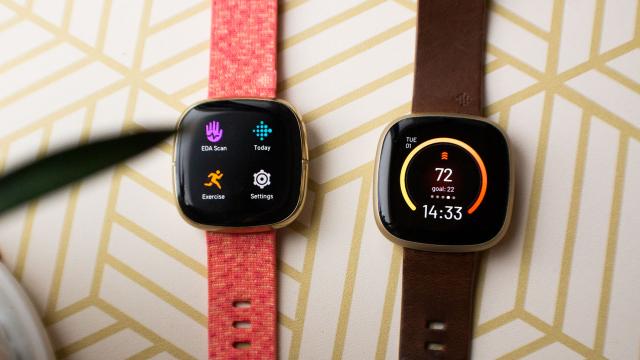Over a year since announcing the deal and after months of regulatory scrutiny, the Google-Fitbit merger is finally official.
This outcome was inevitable after the European Union, which led the most public and in-depth investigation into the deal, granted the merger conditional approval last month. To secure that approval, Google made several concessions over the summer, mainly promising that it wouldn’t use Fitbit’s data for targeted advertising and that it would maintain access to Android APIs for third-parties.
“Today, I’m excited to announce that Google has completed its acquisition of Fitbit and I want to personally welcome this talented team to Google,” Rick Osterloh, Google’s senior vice president of devices and services, wrote in a blog.
[referenced id=”1659159″ url=”https://gizmodo.com.au/2020/12/google-fitbit-merger-wins-eu-approval-with-a-few-conditions/” thumb=”https://gizmodo.com.au/wp-content/uploads/2020/12/18/eykretzox09jwinuqlkd-300×169.jpg” title=”Google-Fitbit Merger Wins EU Approval, With a Few Conditions” excerpt=”Last year, Google announced it was going to acquire Fitbit for a whopping $US2.1 ($3) ($US3 ($4)) billion. Immediately, the news raised privacy concerns as Google is a tech giant with a lot of ad data on the cusp of absorbing another company with a hoard of health data. The deal itself has…”]
Osterloh then went on to address the big elephant in the room. Google, known for its data empire, acquiring Fitbit, known for its health data empire, left many users wary when the deal was first announced in November 2019. So much so that many loyal Fitbit users at the time were vocal about finding a different wearable platform.
“We’ll work closely to create new devices and services that help you enhance your knowledge, success, health, and happiness,” Osterloh writes. “Your privacy and security are paramount to achieving this and we are committed to protecting your health information and putting you in control of your data.” Osterloh also emphasised that the Google-Fitbit merger “has always been about devices, not data” before reiterating that Google had made “binding commitments” to not use Fitbit’s data for ads, maintain Android API access, and allow Fitbit users the ability to connect with non-Google services.
That sentiment was also echoed in Fitbit CEO James Park’s blog on the merger. “The trust of our users will continue to be paramount, and we will maintain strong data privacy and security protections, giving you control of your data and staying transparent about what we collect and why.”
There is, however, a possible snag. The Verge is reporting that Australian regulators had not reached a final decision on the merger, and now Google faces the risk of a $US400 ($515) million fine. Australian regulators had set its decision date for its investigation for March 25, 2021. However, the deadline for the Google-Fitbit deal had already been extended once, with the new deadline set for February 2021. It’s very possible that Google decided that potential profits outweighed the cost of that $US400 ($515) million, and went ahead anyway.
In an email to Gizmodo, a Google spokesperson said that the deal had been reviewed by regulators around the world, including the European Commission, Competition Commission of South Africa, and the Japan Fair Trade Commission. They said the deal had been allowed to close without objections from the U.S. Department of Justice and the Canadian Competition Bureau. The Google spokesperson also noted that the company would continue to engage with Australian regulators during its extended review.
Regardless, this merger is a Really Big Deal in the wearables space. In recent years, Google’s Wear OS software has been limping behind competitors like Apple, Samsung, and Fitbit. This was partly because Wear OS was hamstrung by the fact that Google did not make its own smartwatches, but instead relied on third-party manufactures like Fossil to create the hardware. Those hardware makers were in turn hamstrung by Qualcomm’s outdated Snapdragon Wear processors. Buying Fitbit will hopefully jolt Wear OS into something actually compelling — or, perhaps we’ll see a Frankenstein OS that merges the best of Fitbit OS and Wear OS.
Meanwhile, Fitbit will now have access to Google’s vast resources and even greater global reach. Before 2020, Fitbit had been struggling to make the transition from fitness trackers — its bread and butter — to smartwatches. It acquired Pebble in 2017 and then later launched its first smartwatch, the Ionic. It was a clunky smartwatch. It found success with its second smartwatch, the Versa, but that then led to stagnation as it pumped out iteration after iteration of the same watch while competitors introduced snazzy new features like FDA-cleared ECGs. Those fortunes somewhat changed in 2020. Not only did it introduce several new software features, but Fitbit also threw a Hail Mary and launched the impressive Sense smartwatch, Versa 3, and Inspire 2.
Privacy, security, and competitive concerns surrounding this deal are legitimate. Fitbit, for example, has consistently been the one platform-agnostic wearables maker these past few years. Park says Fitbit will maintain that commitment following the merger, but only time will tell. After all, Google promised Nest would remain a separate, accessible-to-all entity when that deal closed in 2014 before forcing Nest users to migrate in 2019.
